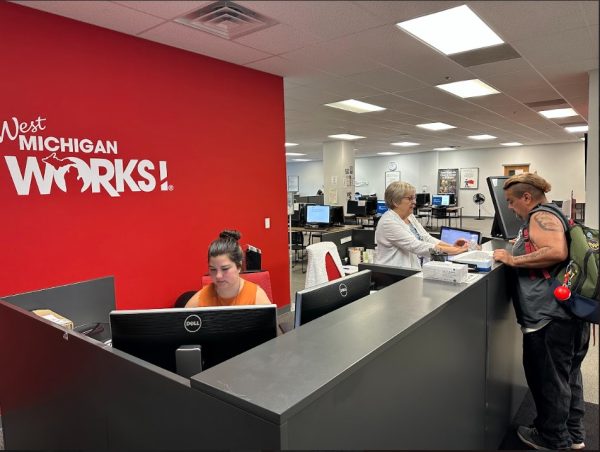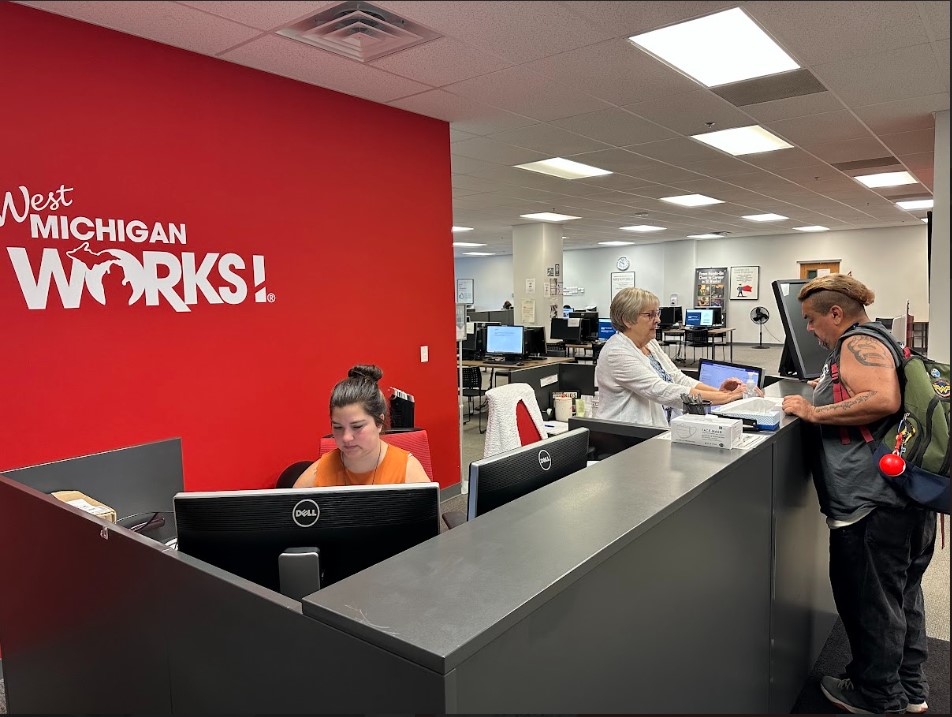
West Michigan Works!, the region’s leading workforce development agency, today announced the results from its annual Talent Survey. The insights provide a holistic view of the job market and workforce pool in our region.
This year’s survey reflects the movement many businesses are seeing among the workforce. More than half of respondents were employed when they took the survey, with two-thirds of respondents actively looking for work and half learning new job skills. Of employed respondents, nearly half were considering changing professions or careers at the time of the survey. Despite the opportunities available, job seekers are experiencing a mismatch between the effort they are putting into their job search and the success they are seeing, indicating a need for resources to overcome their barriers to finding and keeping employment.
Top barriers are childcare, wages and benefits, and a skill mismatch. 62% cited inadequate wages as a primary employment barrier, with childcare and transporting school aged children being among the top barrier for parents.
Parents reported that they would be more likely to use resources related to childcare and flexibility than any other resource. 32% of respondents with children stated that they juggle responsibilities at home, with 9% having an acute need for childcare solutions.
“The annual Talent Survey serves as a crucial barometer for the pulse of our regional workforce,” said Jacob Maas, CEO of West Michigan Works! “Understanding job seeker concerns gives businesses key insights to bridge talent gaps and bolster West Michigan’s economy.”
Nearly half of the currently employed survey participants are grappling with earnings that fall short of their needs. The concern about compensation isn’t just limited to current earnings; when considering new job offers, two-thirds of the participants ranked wages as a top-three factor. Wages and benefits were also the most frequently mentioned topic in open-ended comments.
“Compensation is undeniably a critical factor in the employment landscape,” Maas said. “Our latest findings underscore the balance businesses face in offering competitive salaries and benefits in today’s market. Addressing these concerns with understanding can be a transformative step toward creating mutually beneficial and long-term employment relationships that ensure organizational growth and employee satisfaction.”
Another factor noted by job seekers is mental and physical health. 56% of individuals surveyed emphasized the need for employer strategies to safeguard their health. Coupled with this, 48% conveyed a readiness to use mental health services if made accessible, emphasizing the importance of balancing mental and physical well-being in the workplace.
Work-life balance is another factor that contributes to an employee’s well-being. The survey highlighted a desire for flexible work structures, with half of the respondents voicing a need for adaptive work hours. Furthermore, one in three participants ranked benefits, location and the overarching theme of work-life balance as top factors in job decisions.
“West Michigan Works! and its education, economic development and nonprofit community partners are here to provide businesses with resources to meet the needs of today’s workforce; reducing turnover and increasing productivity,” Maas said.
West Michigan Works! supports businesses with hiring events, streamlined application processes, wage analyses, and training resources. They also connect businesses to training resources like the Going PRO Talent Fund, on-the-job training cost reimbursement and apprenticeship program development.
For job seekers, West Michigan Works! offers tools like the HotJobs! List, career coaching, workshops, scholarships, and support services. They serve those with disabilities in partnership with Michigan Rehabilitative Services (MRS), and partner with a variety of organizations including State of Michigan Veterans Employment Services to help veterans match their skills to gainful employment. They have also expanded services to justice-involved individuals, new Americans and those with long-term unemployment.




